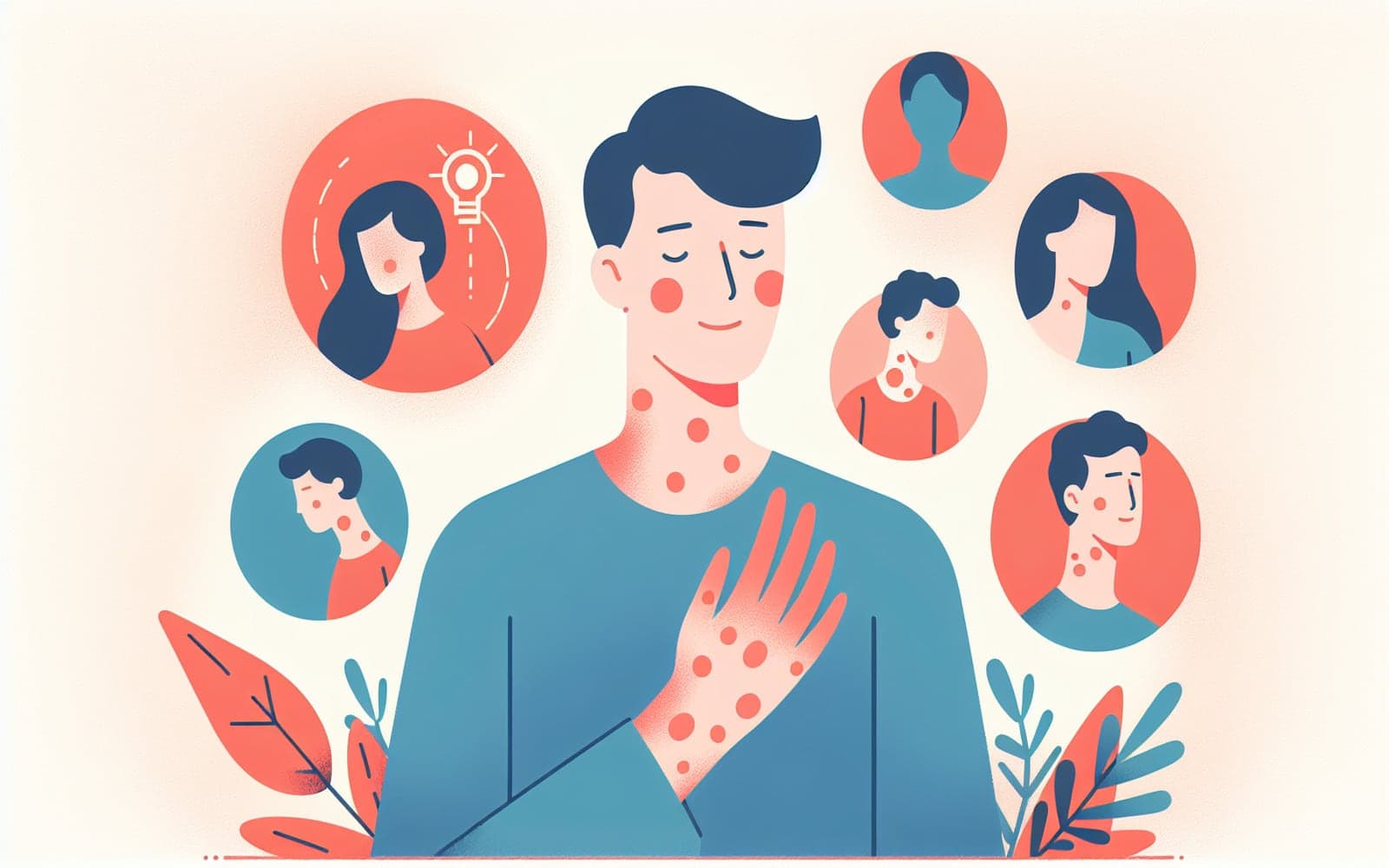What Is Chronic Spontaneous Urticaria? The Mysterious Skin Condition Explained
Published: Dec 07, 2023
Chronic spontaneous urticaria (CSU) is a puzzling skin condition that causes recurring hives and swelling. It affects about 1% of people and can significantly impact quality of life.
Contents
What Does CSU Look Like?
CSU causes itchy, red welts on the skin called hives. These hives can appear anywhere on the body and typically last less than 24 hours before fading. Some people also experience swelling of the lips, eyelids, or other body parts, known as angioedema. The hives and swelling occur repeatedly for 6 weeks or longer without an obvious trigger.
Who Gets CSU?
CSU can affect anyone but is more common in adults, especially women. It often starts between ages 20-40. While the exact cause is unknown, CSU is associated with autoimmune diseases and thyroid disorders in some cases. However, for most people, no underlying cause is found.

How Is CSU Diagnosed?
Doctors diagnose CSU based on symptoms and medical history. There's no specific test for CSU. Basic blood tests are often done to rule out other conditions. A skin biopsy is rarely needed unless the doctor suspects a different condition like urticarial vasculitis.
What's the Outlook for CSU?
CSU is usually not dangerous but can be very frustrating and affect quality of life. The good news is that it often goes away on its own. About half of people see their CSU clear up within a year. However, for some, it can last several years or longer. Proper treatment can help manage symptoms in the meantime.
Frequently Asked Questions
No, CSU cannot be spread from person to person.
There's no cure, but treatments can control symptoms.
Usually not, though some things may worsen symptoms.
Stress may worsen symptoms but doesn't cause CSU.
Some foods may trigger flares, but diet isn't the cause.
The Bottom Line
While CSU remains mysterious, ongoing research offers hope for better understanding and treatment of this challenging condition.
References
- Zuberbier T, et al. Allergy. 2018;73(7):1393-1414.
- Greaves M. J Allergy Clin Immunol. 2000;105(4):664-672.
- Confino-Cohen R, et al. J Allergy Clin Immunol. 2012;129(5):1307-1313.
This article has been reviewed for accuracy by one of the licensed medical doctors working for Doctronic. Always discuss health information with your healthcare provider.
AI Doctor Visit Required
Appointments available 24/7
15-min consultation. No hidden costs.
AI Doctor Visit Required
For safety reasons we have been forced to end this consultation.
If you believe this is a medical emergency please call 911 or your local emergency services immediately.
If you are experiencing emotional distress, please call the the Suicide & Crisis Lifeline at 988 or your local crisis services immediately.
Contact us
You can also email us at help@doctronic.ai
We aim to reply within 5-7 days
How likely are you to recommend Doctronic to friends or family?


